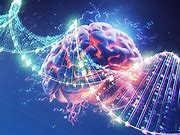Are you someone who can’t start your day without that steaming cup of coffee? Well, here’s a twist for you – it might not be the caffeine that’s doing all the heavy lifting in waking you up. Recent research has uncovered some fascinating insights into the effects of coffee with and without caffeine on our bodies and minds.
We all know that the world runs on coffee, with over two billion cups consumed daily. But what if I told you that decaf could potentially have similar wake-up effects as your regular brew? A study conducted by researchers from Slovenia and the Netherlands delved into this very question, revealing some eye-opening results.
According to the study, participants who expected to consume caffeine experienced cognitive and performance improvements whether they drank actual caffeinated coffee or a placebo. This highlights the significant role anticipation plays in our perception of how coffee affects us.
To dive deeper into this phenomenon, researchers recruited 20 habitual coffee drinkers for their study. These individuals underwent various tests after consuming either decaffeinated coffee or decaf infused with caffeine powder. Surprisingly, both groups showed minimal differences in their physiological responses and cognitive functions post-coffee intake.
While neither group displayed significant improvements in mental arithmetic tasks post-consumption, both exhibited faster reaction times during auditory tests. This suggests that our morning pick-me-up may have more to do with habituation and anticipation than just caffeine itself.
The study also revealed interesting insights from EEG data analysis. Brain waves associated with cognitive processing were heightened after coffee consumption, particularly in the caffeine group. However, both groups experienced similar changes in blood pressure and heart rate – indicating that our brain’s response to familiar stimuli plays a crucial role in how we react to our morning brew.
Intriguingly, habitual coffee drinkers have been shown to have reduced reaction times when exposed to the aroma of coffee alone. This underscores the psychological aspect of our relationship with this beloved beverage beyond its chemical composition.
In conclusion, this research challenges the notion that caffeine is solely responsible for kickstarting our mornings. The expectations we associate with our daily cup of joe seem to hold equal weight in stimulating cognitive and physiological responses akin to real coffee consumption.
So next time you reach for your favorite mug, remember – it might be more about your mind than just needing a jolt of caffeine to jumpstart your day!









Leave feedback about this